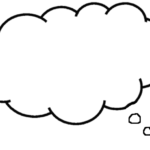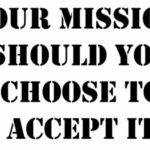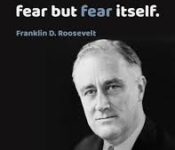Articles in Parsha Insights
Mishpatim: We Matter

When you read the Torah portion that we chant in the synagogue this week, you wonder why G-d even cares. Does the Creator of heaven and earth have nothing better to do with His time than devise laws about the differences between liabilities carried by paid and unpaid custodians? Does …
Yitro: Thought Sins

Thought Sins? Did you ever imagine that the Torah legislates our thoughts? A human police force would never get away with that, but G-d, who made us, can and does.
The Ten Commandments were inscribed on two tablets, five on each. The commandments on the first tablet, belief in G-d, the …
Beshalach: Stay in Your Lane

Your lane leads you from your current position to your chosen destination. If you stay in your lane, you streamline your efforts and make a bee line for your goal. If you veer from your lane, you waste energy, lengthen your journey needlessly, and most importantly, interfere with the person …
Bo: Don’t Condemn

We are so accustomed to hearing people condemn each other that we barely pay it any heed anymore. I don’t know if people used to condemn less often or less vigorously, but it certainly feels that way to me. These days it seems that every time someone opens their mouth …
Shemot: Why They Hate Us

They hate us. Not for anything we do or did. They just hate us. The past month saw a near-daily rash of attacks against Jews. These weren’t isolated attacks by right-wing radicals and white supremacists. These were attacks by ordinary members of the black community against Jews in New York. …
Vayechi: A Symbol of Hope

Hope would have been the most important thing that Jews could have when they descended to Egypt, but hope seems to have been the last thing on the Torah’s mind at this point in the narrative. The last Torah portion of the book of Genesis is all about the passing …
Vayigash: Debt of Kindness

Kindness is something that is usually given out of generosity. We don’t usually think of kindness as a debt. Yet, sometimes it is a debt. For example, if someone treats you kindly, they deserve to be treated kindly in return; you owe them a debt of kindness. If you owe …
Vayeshev: Dare to Dream

Dream on, is an expression we use when someone shares a hope that seems fantastical. To dare to dream is to have the courage to think beyond the box; to push the envelope. Plans that people dismiss as impossible, are the stuff of dreams. Martin Luther King Jr. gave a …

























